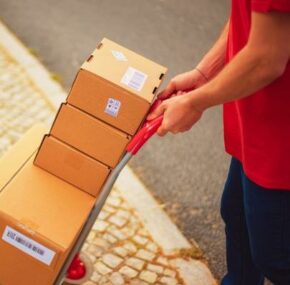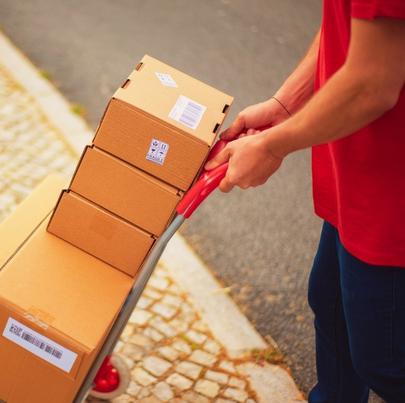Delivery people who are injured on someone’s property may be able to hold the home or business owner liable for their pain, medical bills, and lost wages. Damages are often covered by homeowner or business insurance policies.

Understanding Premises Liability Risks
Personal deliveries provide limited public exposure, as well less driving and more convenience, but they also increase slip and fall liability risks for property owners. While some delivery drivers are full-time employees of delivery companies like Fedex and UPS, many who work for companies like DoorDash, Uber Eats, and Amazon are considered independent contractors without company benefits such as health insurance or workers’ compensation insurance to cover work-related injuries. This means that a slip and fall on private property may leave the property owner footing the bill.
A personal injury lawyer often sees injury claims filed for slip and fall accidents that happen on another person’s property. Under premises liability laws, homeowners, business operators/owners, and property managers are responsible for keeping their property safe for invited visitors, defined as a person/persons who have the property owner’s implied permission to enter the property.
Many premises liability cases are linked to negligent actions by a property owner who fails to provide a safe premises for invited guests. Unsafe or defective property conditions may include:
- Damaged or uneven sidewalks and walkways
- Damaged stairs and handrails
- Unsecured pets e.g. dog attacks
- Trash and debris
- Inadequate lighting
Delivery drivers are often exposed to unsafe property conditions that cause accidents and injuries. However, to win a case through a personal injury lawyer, the driver must prove that the property owner was negligent with regard to ownership and/or maintenance of the property and failed to exercise reasonable care to prevent harm.
When deliveries are scheduled for businesses offices, condominium complexes, apartment buildings, and other operations with limited access, building owners have a duty to reasonably secure access. This is usually done by using key cards, doormen, or security guards. If the premises is not secured and a delivery driver suffers injuries on the property, the building owner may be held liable for the delivery driver’s injuries. Under premises liability laws, a building owner who does not take reasonable steps to secure a building is responsible for injuries due to negligence.






